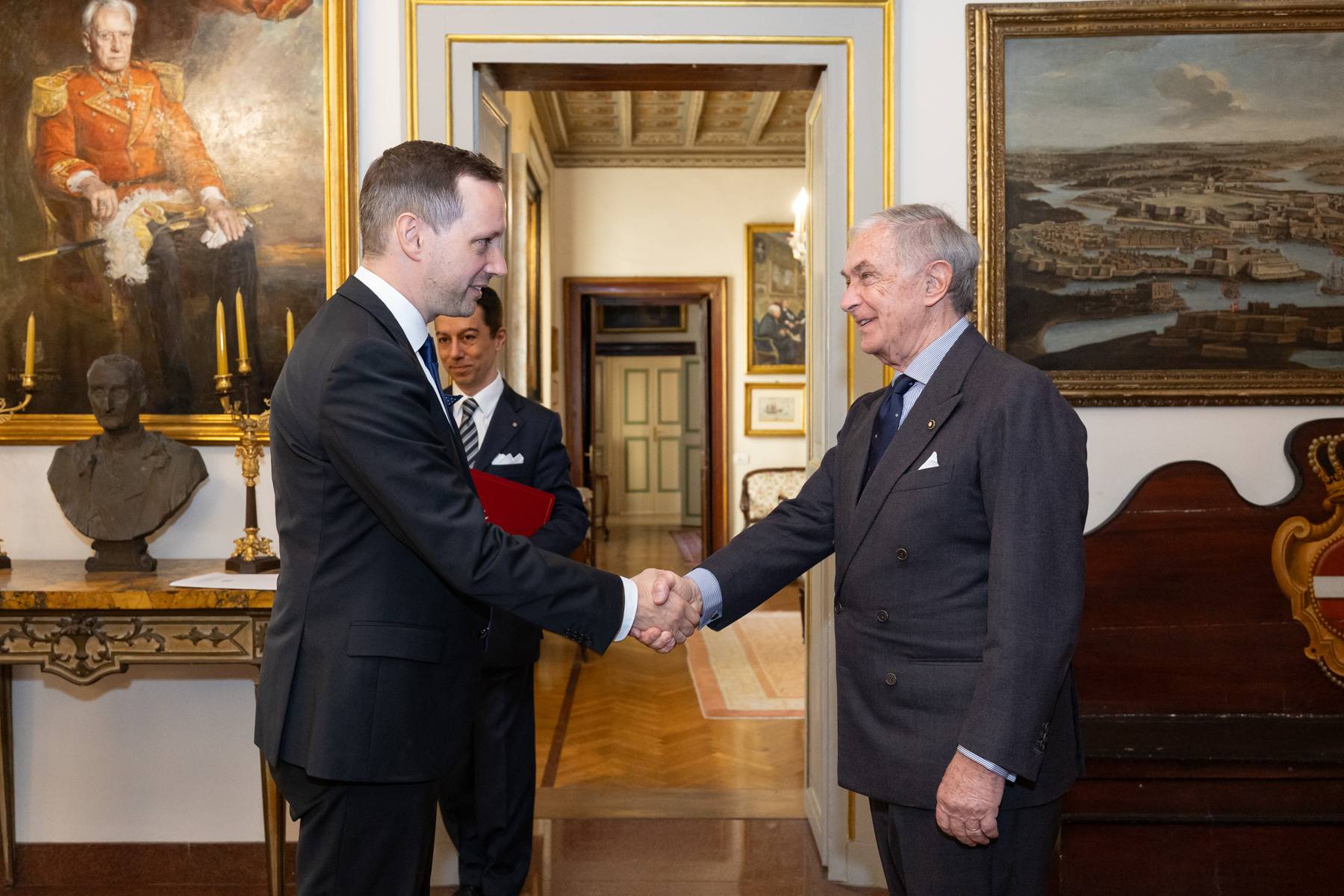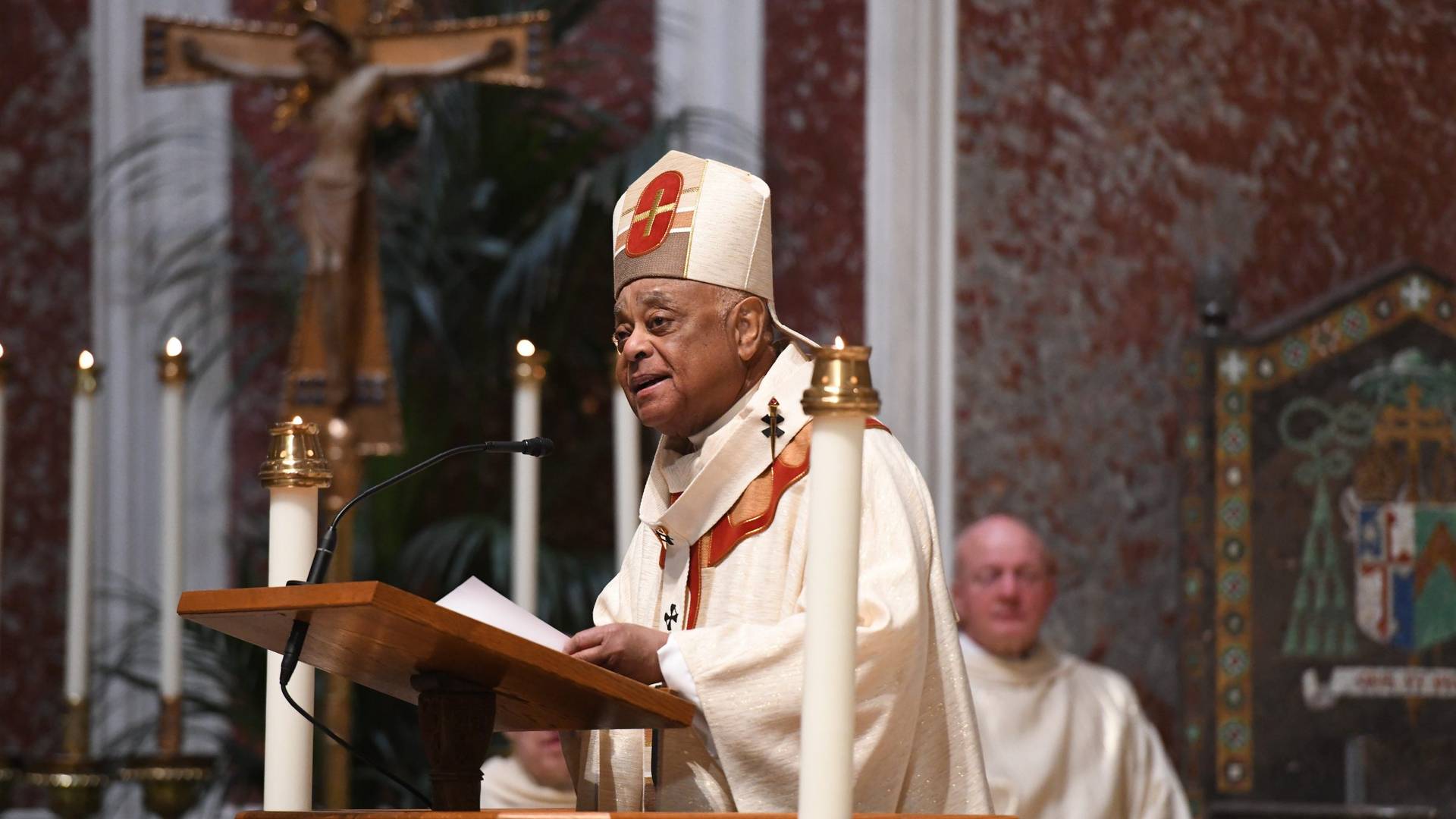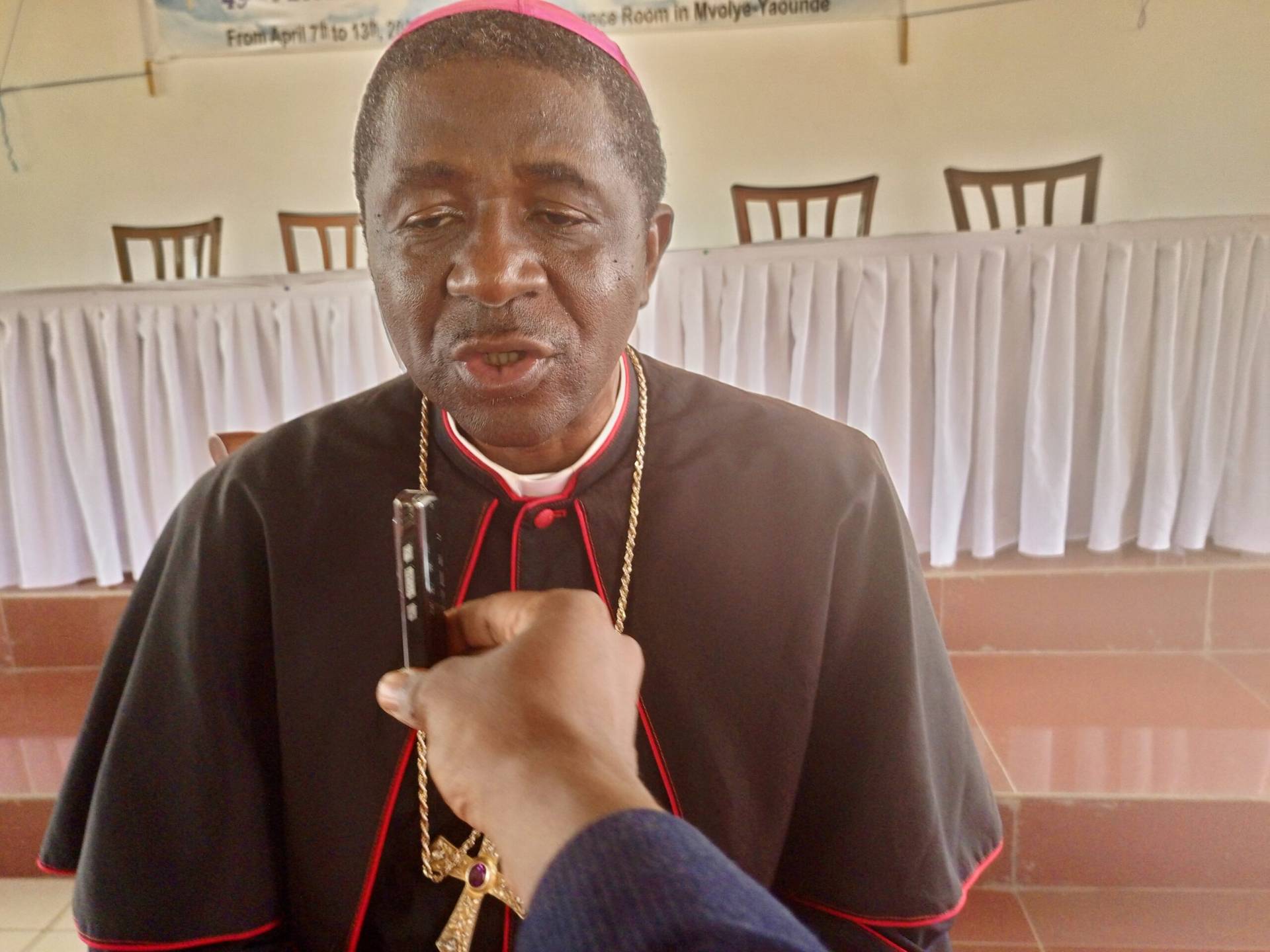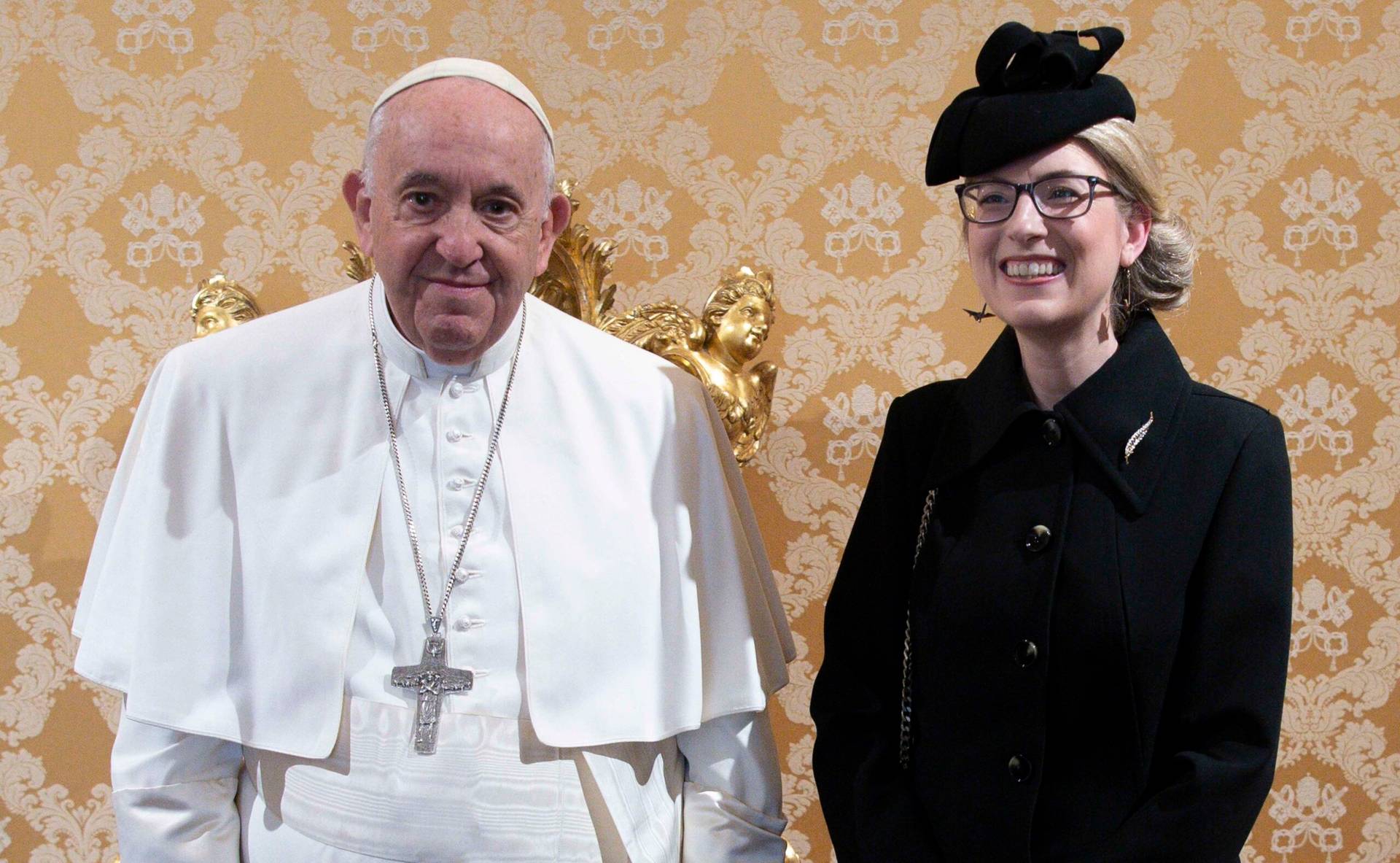A recent blockbuster article by two close friends of Pope Francis asserting there’s an “ecumenism of hate” in the United States, aligning fundamentalist Evangelicals with “Catholic integralists,” continues to kick up dust. Critics are deriding its grasp of American realities, while defenders insist it names an ugly truth that needs to be confronted.
Adding fuel to the fire, many people have assumed that because the authors are close to the pontiff, at least in some big-picture sense the article must reflect Francis’s own views.
To discuss the issues raised in the article by Jesuit Father Antonio Spadaro and Argentinian Protestant Marcelo Figueroa, this week “Crux of the Matter,” Crux’s weekly radio show on the Catholic Channel Sirius XM 129, which airs Mondays at 1 p.m. Eastern, invited two regular Crux contributors to weigh in:
- Austen Ivereigh, a British Catholic intellectual and commentator and co-founder of Catholic Voices, who’s the author of a deeply approving biography of Pope Francis entitled The Great Reformer: Francis and the Making of a Radical Pope.
- Thomas Williams, an American theologian and ethicist based in Rome, who also serves as the Rome bureau chief for Breitbart News.
Given those pedigrees, it may come as little surprise that Ivereigh and Williams had sharply contrasting views on the La Civiltà Cattolica article, with Williams describing its “bald statements” as “laughable by academic standards,” and Ivereigh insisting he’s “amazed” people seem to be missing the point, which is that the article’s core argument is “absolutely spot-on and irrefutable.”
The following is an excerpted transcript of the conversation between Ivereigh and Williams, which took place July 17. “Crux of the Matter” is co-hosted by Crux editor John Allen and co-editor and Vatican correspondent Inés San Martín.
Crux: Can we ask each of you to give us the one-minute version of your take on the article? Tom, let’s start with you.
Williams: It’s not a long article, it’s about three pages. It was very disconcerting to me and obviously to a number of other people, since there have been numerous articles written by now criticizing the piece, especially for its over-simplification of the religious landscape in the United States and its history, and the way that morals, politics and religion have played out in that history since the founding.
In particular, the authors are really targeting the relationship between Evangelicals and Catholics working together, in an ecumenism they determine to be an ‘ecumenism of hate’ or an ‘ecumenism of conflict.’ That’s not only a strawman – I can give evidence that it’s completely false – but it was a very disturbing piece that displayed an awful lot of ignorance about the American situation, and also a lot of tendentiousness and partisanship.
For instance, they list a number of U.S. presidents they see as infected by a very bad form of Christianity, and every one they mention is a Republican – Richard Nixon, Ronald Reagan, George Bush, Donald Trump. They say every one was influenced by this very bad form of Christianity rampant in America. Why not talk a little bit about presidents on the left, or presidents who were Democrats, who have been influenced by another form of Christianity in the United States? Why limit it to this single-minded criticism?
Ivereigh: I agree that in many ways the article fell between two stools. [Note: That’s a British schooling expression, meaning too difficult for a beginner and not detailed enough for an advanced learner.] It wasn’t big enough or comprehensive enough to take in what is a very big canvas, which is, as Tom just said, the interplay between religion and politics in the U.S.
However, I’m surprised there have been so many essays in response to it pointing out its faults in this area, sidestepping the big point the article is making, which to me is absolutely spot-on and irrefutable. It’s that an extremely unhealthy collusion on the right of American politics, between very conservative Catholics and Evangelical ‘ultras,’ frankly has produced not only a Manichean world view and an apocalyptic geopolitical outlook, but it’s done enormous damage to the Gospel and to the Christian witness in the United States.
I’m amazed, really, at the sheer volume of articles arguing the piece, and in none of them is there any acknowledgement that there’s anything wrong with American religious and political culture, which just seems to me absolutely staggering.
Crux: We set this conversation up by saying that most people, looking at the bylines on this piece, couldn’t help assuming it reflects the views of Pope Francis. Do you both think that’s a fair assumption?
Ivereigh: I think we have to be very careful about saying this article reflects Pope Francis’s views. Actually, I could never imagine Pope Francis saying what’s said in this article, because that’s just not the way he is.
That said, I know he would share the concerns the article seeks to identify, which is the collusion and the apocalyptic geopolitical outlook I just mentioned and which the article focuses on. Antonio Spadaro and Marcelo Figueroa, both of them, by the way, friends of mine, are very close to Pope Francis and understand his thinking in a very deep way. So, I think it’s right to say the concerns would be shared by Pope Francis, but I don’t think you can pin the argumentation anywhere near the pope.
I very much doubt, actually, that Pope Francis even read the article [prior to publication], though of course I don’t know. By now he’s certainly learned about it, and I think he would have given a general approval to it, as the Secretariat of State did, because I think it makes a very powerful argument.
Williams: I think it’s a bit of a weather balloon, and I also thank God that Francis did not sign this document or anything like it, because it would have done great damage to his pontificate, which would have been terrible.
I think he maintains a certain distance and credible deniability by having two of his friends write it in this journal, so he can watch and gauge the backlash to it, see what people say about it and the criticisms that are leveled, and then decide whether he wants to move in closer or step back.
He’s said himself that he’s not an expert on religion in the United States or culture in the United States, and so, no, I don’t think this is something that comes out of his head. I do think he shares these concerns, as Austen said. I completely agree with that. But I don’t think he considers himself enough of an expert that he would directly weigh in on the history of religion and politics in the United States in the way these authors have dared to do.
Crux: Tom, apart from breakdowns in details, did you see anything in the article you thought was helpful or accurate?
Williams: A lot of what they say is true, in the sense that, yes, is there a ‘Prosperity Gospel’ that distorts the Gospel of Jesus Christ? Yes, it exists. Is there a website called Church Militant that spouts all sorts of crazy right-wing ideas about the Catholic faith? Yes, yes there is. Was there a 12-volume work called The Fundamentals? Yes, there was, etc.
It’s not in the individual facts, it’s the way they’re sewn together into a generalization that ‘this is the state of American affairs,’ and bringing it together as if this is the way in which American conservative Christians and Catholics think. They far over-emphasize the influence these individual works have had.
By the way, when you get into ‘Manichaeism,’ you have to be very, very careful. This has a long history and a very specific meaning. In the way they speak about it here, they manifest great ignorance with regard to the history of Manichaeism, what the movement actually meant, what it was that Augustine was attacking when he attacked Manichaeism, and where it came from.
To throw that on American Christians, I think, is absolutely absurd. It’s like labeling your enemy a ‘Hitlerite’ or something, when the person has nothing to with Hitler whatsoever.
Crux: Austen, you want to react?
Ivereigh: Whether or not they’re using ‘Manichaeism’ in a correct way, there certainly is a black-and-white, us-and-them aggressive view of the world, which has been expressed particularly by this administration, with the support of leading Catholics and leading Evangelicals. I’ll just again express my amazement that this doesn’t seem to bother Tom, or indeed anybody else who’s rushed to criticize this article.
I realize I’m a foreigner here standing outside, but if you ask me about Catholicism in Europe and politics, I would point to a lot of very unhealthy narratives, particularly around fascism and nationalism in the early part of the 20th century. I would say that’s deeply unhealthy, it’s a violation of the Gospel, and that’s exactly what’s happening at the moment in the United States.
Tom’s boss, Steve Bannon, gave a talk to the Vatican by videolink back in 2014, in which he said the Judeo-Christian tradition is in crisis and only the ‘Church militant’ can fight against this new barbarity. [Note: Bannon resigned from Breitbart to take on his role in the Trump administration, so he is no longer Williams’ “boss”.] He talked about the long history of the struggle of the West against Islam. This is a Manichean view, this is the idea that religions are destined to clash militarily.
Frankly, it’s a narrative that’s very close to that of ISIS, and I completely agree with the two authors in that sense. That’s what they meant by ‘Manichean.’ Whether it’s a correct use of the word, I don’t know, but it certainly nails the truth, and I’ll just say again, I find it astonishing that people like Tom defend it. We are talking about a white Christian nationalism, very similar to what Putin is spouting, very similar to what Mussolini spouted back in the 1920s, which of course is all about the defense of Christian values, but it’s an extremely selective defense.
As we all know, the U.S. Catholic right for a long time has said that there are ‘non-negotiables’ such as abortion, but hey, climate change? That’s a prudential judgment. Immigration? That’s a prudential judgment. Small arms trade? No, that’s up you, it’s a matter of freedom. Death penalty? Also, somehow prudential. That’s what I mean about the ransacking of the Gospel, the political manipulation of Catholicism for ideological ends, and that’s exactly what this article called attention to.
Crux: Tom, Austen mentioned your relationship with Steve Bannon. Do you want to respond to that?
Williams: I understand that Austen doesn’t like Steve Bannon, that’s fair. He’s a very well-read person, but what the article says …
Ivereigh: I’ve never met him, Tom, so it’s not a question of liking. I’m talking about his ideas.
Williams: What the article says about him is simply false. They say that he has an ‘apocalyptic geopolitics,’ and that he was very strongly influenced by the Calvinist Pastor John Rushdoony. As far as I know, and I did a lot of research on this, Steve Bannon has never heard of Rushdoony. He’s never mentioned him, he’s never alluded to him.
This is a pastor who taught that all the teaching in the Old Testament should be applied in modern-day law, including execution of blasphemers, execution of homosexuals, etc., a very theocratic view. Steve Bannon is not a theocrat. Obviously, Austen’s never talked to him, because he doesn’t have a theocratic bone in his body. He doesn’t want to see government by Bible. To attribute that to him, which is the one paragraph that names Steve Bannon, just displays an astounding ignorance.
These authors don’t know the people they’re talking about, they don’t know what they believe and stand for, and yet in a pseudo-academic journal they’re willing to make these bald statements that are laughable by academic standards. How can you say something that’s patently not true, and then, by the way, you put in a footnote that doesn’t even relate to what you’re insinuating in your statement? I found it just appalling.
Crux (San Martín): As a non-American, I was personally frustrated with the article. Beyond which facts were accurate and which weren’t, I found an extreme lack of acknowledgement of the many good sides of the Catholic Church in America. Shouldn’t they have recognized that the Church in America is not just all white nationalist, alt-right, crazy people?
Ivereigh: Ines is saying this article doesn’t cover the good things about United States Catholicism. Well, of course it doesn’t. It’s a 2,200-word or so article identifying something very sick and very ill in the American culture. I think it was an article that was focused on one thing, and it did it well or badly depending on your point of view.
I think it delivered the crucial punch, but didn’t do it as well as it should have done and left itself very open to criticism.
Pope Francis has a very positive view of the U.S. Church, and indeed when he was in the United States, he had plenty of praise for it. All of us admire U.S. Catholicism … it’s vigorous, it’s big, it’s strong, it has a tremendous influence in U.S. society. But there is a dark side, and it is a theocratic impulse, it is the idea that you can conquer the public square by trading in some parts of the Gospel and neglecting others, that you can do deals with power-brokers to ‘Christianize’ from above. That needs acknowledging, and it hasn’t been acknowledged.
Crux: Austen and Tom, unfortunately we’ve run out of time, but no doubt we will pick this up again.














